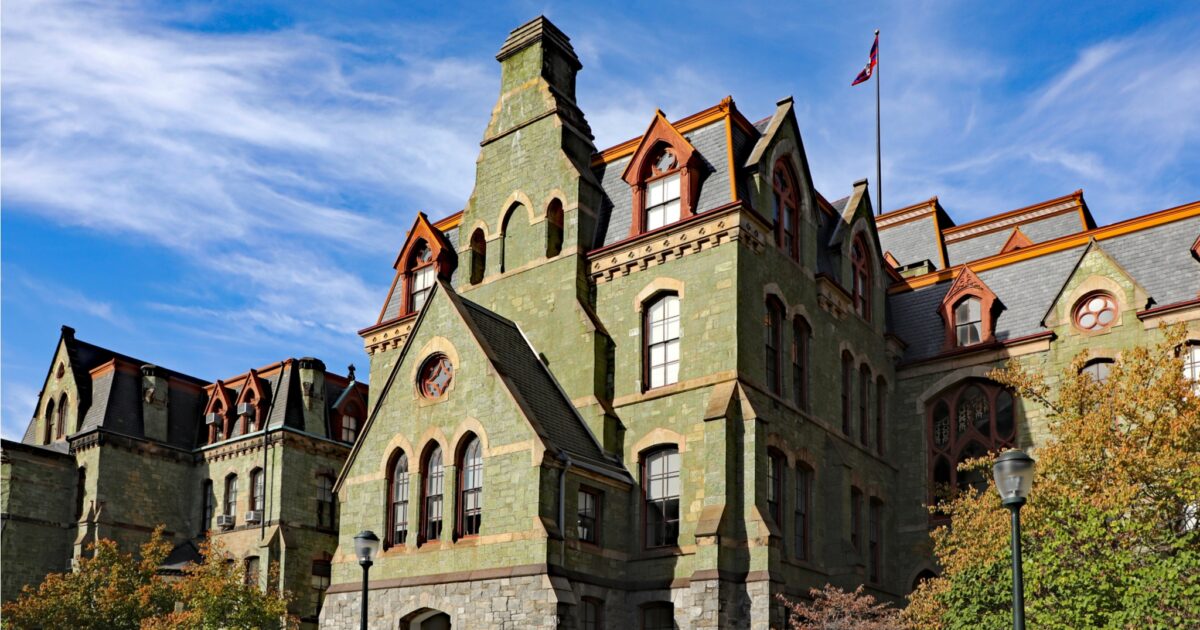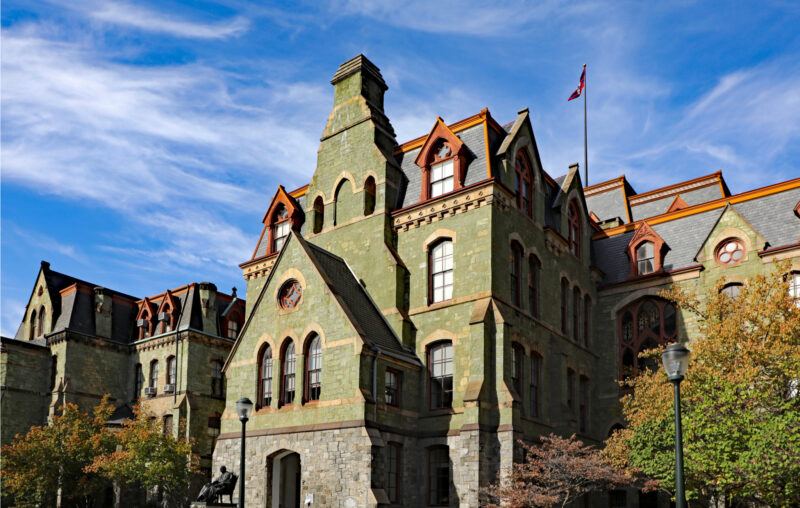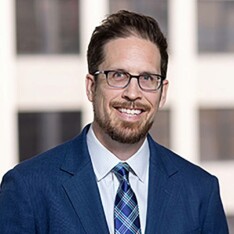Reprinted from Law & Liberty
Come, ye philosophers, who cry, ‘All’s well,’ / And contemplate this ruin of a world.” So wrote Voltaire in his poem on the 1755 Lisbon earthquake, which destroyed the city and claimed the lives of up to one-fifth of its population. The disaster, which occurred on All Saints’ Day, ruined the faith of many, and shocked the European mind. It became an occasion for critiquing the philosophical optimism of Leibniz, Pope, and other thinkers of the day.
Similarly, the 2016 election of Donald Trump was a political earthquake that became an existential crisis for many Americans, especially those on the left. In our universities, it caused some scholars to question their faith in liberalism and in the unending progress of American democracy. This was apparently the case for Michael Bérubé and Jennifer Ruth, a pair of academics who agonize over this American earthquake in their new book, It’s Not Free Speech: Race, Democracy, and the Future of Academic Freedom. They are anxious to understand “how to reconcile a version of history that moves steadily in the right directions (if sometimes two steps forward, one step back) with one in which a nation’s history can be so easily hijacked.”
Bérubé and Ruth “have long been involved with the AAUP” (the American Association of University Professors) and claim to be “deeply committed to academic freedom.” Now, they question their previous liberal principles and believe that academic freedom must be revised to enshrine critical race theory.
As they explain, “We (here, we literally mean our two selves) are classic examples of the white left-liberal stunned by Trump’s election and by wave upon wave of police and vigilante killings of Black men and women into thinking much more critically.” Further, “the advent of Trumpism, and the increasingly open expressions of fascism and neo-Nazism in the United States, place unbearable pressure on liberal shibboleths about how the so-called marketplace of ideas actually works in reality.” In response to these events, they have immersed themselves in critical race theory and now believe that “a robust theory of academic freedom must be premised on an equality that goes beyond formal equality, one that is not devoted to a false universality but rather sees color, gender, differing ability, etc.” Their central argument is that academic freedom should be redefined to exclude white supremacists.
One wishes that “left-liberals” like Bérubé and Ruth, who are so concerned about Trump’s election, would reflect “more critically” on the “unbearable pressure” their own reactions to it have placed on the rest of us to defend the principles and institutions of this country. Instead, Bérubé and Ruth recommend revising the definition of academic freedom and instituting academic freedom committees that could institutionally subject scholars and teachers to moral panics and political litmus tests. It is an extreme overreaction. As others have noted, it is also bizarre that they have written a whole book arguing that white supremacist professors should be fired while offering remarkably few examples of people who they think should be fired. Even in the case of Amy Wax, who is one of their primary targets, they admit that “while we see Wax’s beliefs as disqualifying, this view is not shared widely.”
The most obvious flaw in the book is that Bérubé and Ruth do not clearly define who counts as a white supremacist. Any decent person would reject many statements made by a Richard Spencer or a Revilo P. Oliver, but the logic of Bérubé and Ruth’s argument is much more expansive, because, like many on the left, they employ the term so broadly as to render it useless as a category. This problem stems from their endorsement of critical race theory’s critique of liberalism, which condemns “its inability to understand racism as a structural phenomenon rather than as the agglomeration of individual, intentional acts of bigotry.”
This would seem to create a conundrum, though the authors are never straightforward about it. As they ask their readers to agree that white supremacist professors should be fired, they also claim that white supremacy is endemic to liberalism, America, and our universities. Indeed, at one point, they refer to the “entrenched, unshakeable beliefs of the white supremacist professoriate” and then admit on the same page their intention to “maintain that the promotion of white supremacy is disqualifying for a college professor.” A few pages later they assert that “White supremacism is baked into the foundations of some academic fields in this country, and it remains a powerful obstacle to any attempt at honest and free intellectual exchange, let alone any attempt to forge a more perfect union.”
Thus, while they claim they “are trying to strike a balance between individual hard cases and broad principles for rethinking the meaning of academic freedom,” it is quite likely that the principles they propose would be broad enough to impugn large swaths of the professoriate and even whole disciplines. (For example, what could this mean for classics?) Bérubé and Ruth make it sound as though they just want to cancel a few people, but their arguments actually suggest that we should remake the entire academy on the basis of critical race theory. The first option would mean their book is a solution in search of a problem; the second would mean they are proposing an inquisitorial disaster.
Their argument is also confused by the fact that the book is a kind of palimpsest. The authors’ more traditional concerns from their work with the AAUP remain underneath their main argument. Bérubé and Ruth want to protect scholars from outside political interference, advance faculty governance in academic matters, and defend the academic freedom of contingent faculty. They spend a chapter exploring the relationship between academic freedom and extramural speech (an issue that has become more pressing in the age of social media). They recommend the creation of committees populated by faculty to monitor cases involving potential violations or misuses of academic freedom. But those concerns are overridden by their arguments that academic freedom must be informed by critical race theory, and that white supremacists should be fired.
The competing layers of the book obfuscate the authors’ argument. They often rely on the more traditional language of “incompetence” to explain why they think white supremacy should be considered a firing offense. They liken it to a historian denying the Holocaust or a chemist teaching the existence of phlogiston (at no point do they show awareness of the different epistemic standards of different fields, e.g., science and politics). But then they also suggest (especially when they are engaging critical race theory) that white supremacy is problematic because it is morally reprehensible and antidemocratic. Should white supremacy be a firing offense because it is scientifically “groundless” or because it is morally and politically “pernicious,” or both? It is remarkable that the authors are never clear on this point.
Ultimately, Bérubé and Ruth seem quite willing to subordinate the purpose of the university entirely to politics. Throughout the book, they claim that our colleges and universities should serve democracy or the common good, but they misunderstand the nature of that service. They rarely mention truth or knowledge, and they apparently fail to grasp the contemplative purpose of the university. The highest (but not the only) way in which universities serve the common good is by providing time and space for reflection on truth for its own sake. In so doing, they leaven the political community by elevating the minds of citizens toward an intrinsically valuable end that transcends politics. Bérubé and Ruth denigrate this function of the university when they claim that the academic freedom committees they recommend “would also, we hope, understand that academic freedom’s justification is to serve the common good, which is not one and the same as the abstract pursuit of an ever-contested truth.”
They also fail to discuss how universities serve the political community by cultivating citizens who are both knowledgeable and habituated to exercise the virtues of republican citizenship, one of which is a capacity for civil debate and discussion of ideas and policies. Indeed, they have very little to say about teaching or students at all. They think of our universities’ contributions to democracy primarily in terms of providing expert knowledge, although they now also believe our institutions of higher education must play a crucial role in advancing social, and especially racial justice or equity. The book does not provide evidence that they have considered the tension between these two conceptions of the university, which has been discussed by Jonathan Haidt, for example.
They also do not seem to realize how their political arguments undermine the credibility of our universities. They correctly argue that faculty should be protected from political interference—that “faculty autonomy in academic decision-making” should be “respected within the public sphere,” which means that “the general public and its elected officials do not get a direct say over academic judgments.” They also correctly state that we should insist on “a high degree of academic freedom so that universities remain trustworthy sources of information and interpretation perceived to be largely free from manipulation by politics and special interests.” But how can they expect people to trust universities when professors like Bérubé and Ruth clearly want them to use their insulated position to advance a specific political agenda? The authors’ own account of their political motivations for writing this book (quoted above) undermines the naïve ideal of the university as a trusted source of expertise, since they admit repeatedly that their argument to redefine academic freedom is a response to recent social and political events. Why would anyone who disagrees with their political views trust or defer to them?
In closing, it should be acknowledged that Bérubé and Ruth are on safer ground when they stick to the more traditional concerns of the AAUP. They are right, for example, that the academic freedom of contingent faculty needs better protection. The academic freedom committees they envision might help with that problem, but only if we reject the main argument of their book. Realistically, the measures they recommend could jeopardize the career of any scholar who dared to express unpopular moral or political views, but it’s only reasonable to expect that contingent faculty would be especially vulnerable.
Bérubé and Ruth are also correct to distinguish between free speech and academic freedom, which is one of their key themes. Unlike every citizen’s right to freedom of speech under the First Amendment, teaching and research in the academy are and should be regulated for competence and excellence. But, of course, they already are, as they themselves acknowledge, through hiring, evaluations, tenure and promotion, peer review, and so forth. Faculty are also subject to the law and can face criminal or civil consequences if their speech veers into harassment or other legally proscribed categories.
Incidentally, Amy Wax has already suggested that Bérubé and Ruth might be guilty of an offense that is not covered by academic freedom: defamation. At two points in the book, they claim that Wax was lying when she made controversial claims about the performance of black students at the University of Pennsylvania Carey Law School. (Remarkably, neither they nor the law school have followed the appropriate academic procedure, which is to present data to argue against her assertion.) When Bérubé and Ruth published an article adapted from their book in The New Republic, Wax notified the authors and an editor at the magazine that she would bring a defamation case against them because they have no evidence she was lying. In response, the magazine changed the wording of the article. Similar changes were not made in the book.
In any event, Bérubé and Ruth have failed to demonstrate that we need new tools or a revised understanding of academic freedom to respond to white supremacy in the academy. What they have revealed is that their commitment to academic freedom was premised on a belief that it would serve their political views in the long run, something about which they have become pessimistic since Trump’s election. Unlike Lisbon in 1755, our universities are not yet ruined, but they certainly might be if we allow them to be subordinated to politics in the way that these authors recommend. Rather than abandoning the principles of free speech and academic freedom, we should embrace and reinforce them. This is how we will preserve our universities and enable them to perform their proper role in our society, which is to provide a space for the free pursuit of truth.




